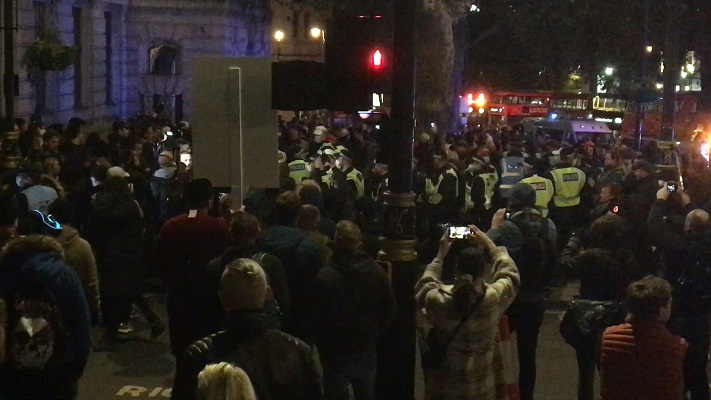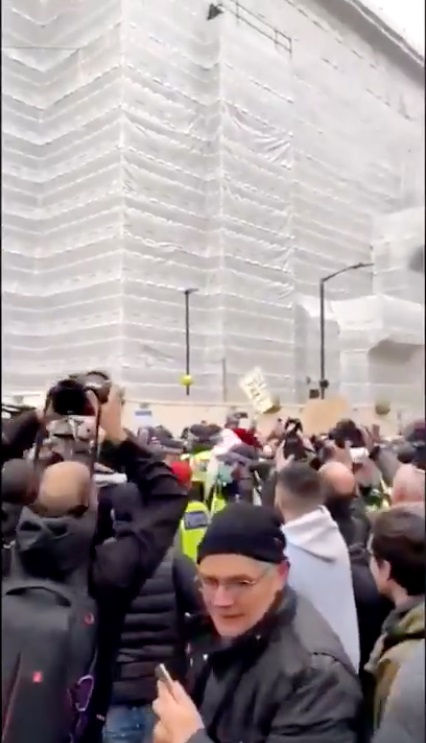LOCKDOWN PROTESTS DURING COVID
April 2020
The Covid-19 pandemic hit Britain early in 2020. What was rightly understood to be a public health emergency was turned into something different: the pretext for an extraordinary lockdown of public life. Barred from gathering in large groups, and with Parliament suspended, Britain's political process was suppressed as was its every day social life. This is an account of some of the protests and actions that in time would reverse the lockdown and repressive police presence. Part two is here, and Part three, here.
As a disclaimer, I took part in these events, but I did not organise them. James Heartfield, 26 January 2022
'Self isolating? You are not alone!', read this community action leaflet. Islington filled its empty billboards with these injunctions to be kind.
But social distancing rules effectively prohibited public protest (just as Parliament itself closed shop). It would take some time before people recovered the confidence to stand up for their rights.
30 June - Black Lives Matter
Protests at the killing of George Floyd in America were the first substantial public action in the UK since the lockdown was announced. It was telling that people felt more confident protesting over events in America than they did over the lockdown. Still, the BLM protests made it possible for Britons to take up their own issues.
15 August 2020 - Islington anti-LTN protest
Without consulting anyone, Islington Council made a number of streets limited access (Low Traffic Neighbourhoods). It was a part of the claim to 'Build Back Better'. But many residents disagreed, and protested, led by Jody Graber (speaking). I was pleased to meet up with my old comrade, Martin Durkin.
29 August 2020 - London demonstration against lockdown
This was the first national demonstration, and it caused a lot of hostility from those who were ideologically committed to the lockdown - and that encouraged the Home Secretary to try to ban protests altogether.
17 October - protest in St. James' Park
Testing the waters of what was and was not legal, this march took place mostly in the park.
November 2020 - Confrontation
5 November - Police attack Trafalgar Square demo

Like Cold War era Stalinists, the police shut down this Bonfire Night demonstration, arresting those who would not move on, or tried to make speeches.
7 November - protest outside Downing Street
Two days later, the poor turn out at this protest showed the chilling effect of the police's heavy-handed tactics. Labour-supporting journalist Owen Jones turned up to cover it, and I talked to him. Setting the standard for the old left's attitude to the anti-lockdown protests, he expressed himself wholly unsympathetic.
8 November - an unofficial Remembrance Day
For the first time since the Second World War, there was no Remembrance Day organised in London. Some veterans and their friends organised their own, deliberately breaking the ban on public demonstrations.
28 November - breaking through police lines

The 28 November demonstration came together like a flash mob in Hyde Park, before breaking out and taking to the streets. At first the police were outnumbered and we controlled the streets, but over time we were picked off, before most of the march was broken up around Piccadilly. Even Santa Claus was arrested - though I regret your reporter fled the scene.
7 December - hospitality staff protest outside Parliament
After the conflicts with the unofficial protesters of the anti-lockdown movement, the powers-that-be were more willing to countenance these masked bar-staff - though they were very much against the curfew and its destructive impact on their livelihoods.